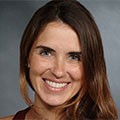Let’s be honest, becoming a cataract surgeon is fun.
It’s one of the things we all look forward to in residency (well maybe with the exception of some pre-destined oculoplastics folks). Learning to become a cataract surgeon is exciting, challenging and extremely rewarding. A few minutes in the OR can make a huge difference in the life of your patient. The truth is, advocacy is no different.
In the time it takes to do a single phaco, you can impact the lives of patients across your state and the country. You may feel hesitant about getting involved in advocacy because you aren’t sure you have what it takes. Let me convince you otherwise. Here is a list of some of the skills that you have developed for cataract surgery which make you qualified to become successful at advocacy.
Skill No. 1: Adaptability
For surgical success, you have to be prepared to adapt your strategy to ensure good outcomes no matter what challenges you face. The same is true for advocacy.
In the last two months, our world has changed. In the COVID-19 era, people everywhere are finding new ways to approach things like advocacy. Advocating for our patients and profession is more important now than ever. So this year, the Academy held its first Virtual Advocacy Day on Tuesday, May 12.
Instead of seeking out Congress members in their offices in Washington, D.C., we discussed issues on conference calls and via Zoom meetings. Although there were a few technical glitches, there were also some distinct advantages.
The Zoom meeting our Colorado team had with Rep. Diana DeGette, D-Colo., was particularly good. The meeting seemed more casual and less rushed than my previous advocacy meetings. There was less of the usual hallway noise or hustle and bustle from the congressional office buildings. Instead, we got DeGette in a quiet office. She was extremely receptive to our requests and was already well versed in the issues we presented, urging us to communicate our issues with other members of Congress. Being willing to roll with the punches and to adapt your strategy improves the likelihood of success.
Skill No. 2: Preparation
Just like preparation before an OR day is key, advocacy requires getting to know the issues beforehand.
At the Academy’s traditional advocacy events in D.C., there is a briefing prior to hitting Capitol Hill. This year’s briefing came in the format of a webinar hosted the night before. We reviewed our two key issues: 1) physician practices need assistance to be able to continue to provide for our patients during and after the COVID-19 pandemic and 2) prior authorization and step therapy requirements delay appropriate care.
I was surprised to learn that ophthalmology has been one of the hardest hit medical specialties during the COVID pandemic: 95% of ophthalmologists are seeing less than a quarter of their pre-COVID-19 volume, 63% of ophthalmology offices have had to furlough employees and two-thirds of ophthalmology practices will struggle financially due to the COVID-19 pandemic. The impact is huge and the Academy is urging Congress for both short and long term relief through financial assistance programs and improved reimbursements.
I was less surprised to learn of the negative impact prior authorization and step therapy have on patient care — it’s an issue most of us know too well and another issue that warrants the attention of Congress, especially now that most practices are working with limited staff. Spending time getting to know the issues always makes advocacy days more productive and more rewarding.
Skill No. 3: Teamwork
Cataract surgery requires a team and similarly, no one expects you to walk into a meeting with a congress member solo. On the contrary, you usually get to have an entire team with you for advocacy days.
For our virtual advocacy day, our Colorado team was stacked. We had several members from the University of Colorado: Leonard Seibold, MD, past president of the Colorado Society of Eye Physicians and Surgeons and member of the Academy’s secretariat for state affairs, Valerie Dawson, MD, Michael Puente. MD, and me. We also had Adrienne Ruth, MD, and Michael McCracken, MD, ophthalmologists from private practices in Colorado.
The best part about having this kind of lineup was that everyone had a different perspective on the issues. Drs. Ruth and Puente are pediatric ophthalmologists and spoke to the issues around lack of financial support from the federal government for Medicaid patients, who make up a large portion of their practices.
Dr. McCracken runs a solo practice, and he shared the heartbreaking story of having to furlough his employees. Having a team with unique perspectives from different subspecialties and different practice types allowed us to really drive home the issues with personal experiences.
Although both cataract surgery and advocacy are “elective,” they are important for our patient’s quality of lives. So, remind yourself that you are armed with a set of skills that uniquely prepares you for advocacy and that you are destined for success. Now get involved!
 |
About the author: Monica K. Ertel is an ophthalmologist practicing in Denver.
|